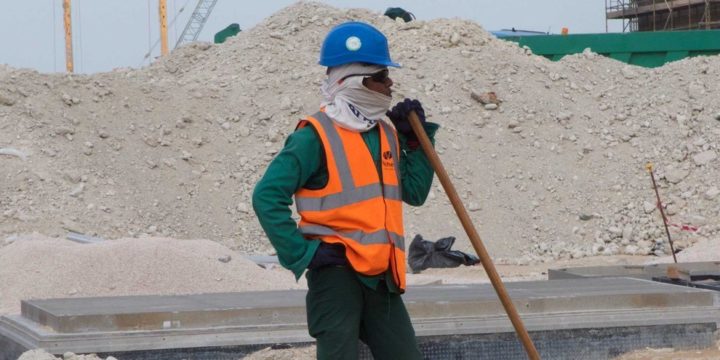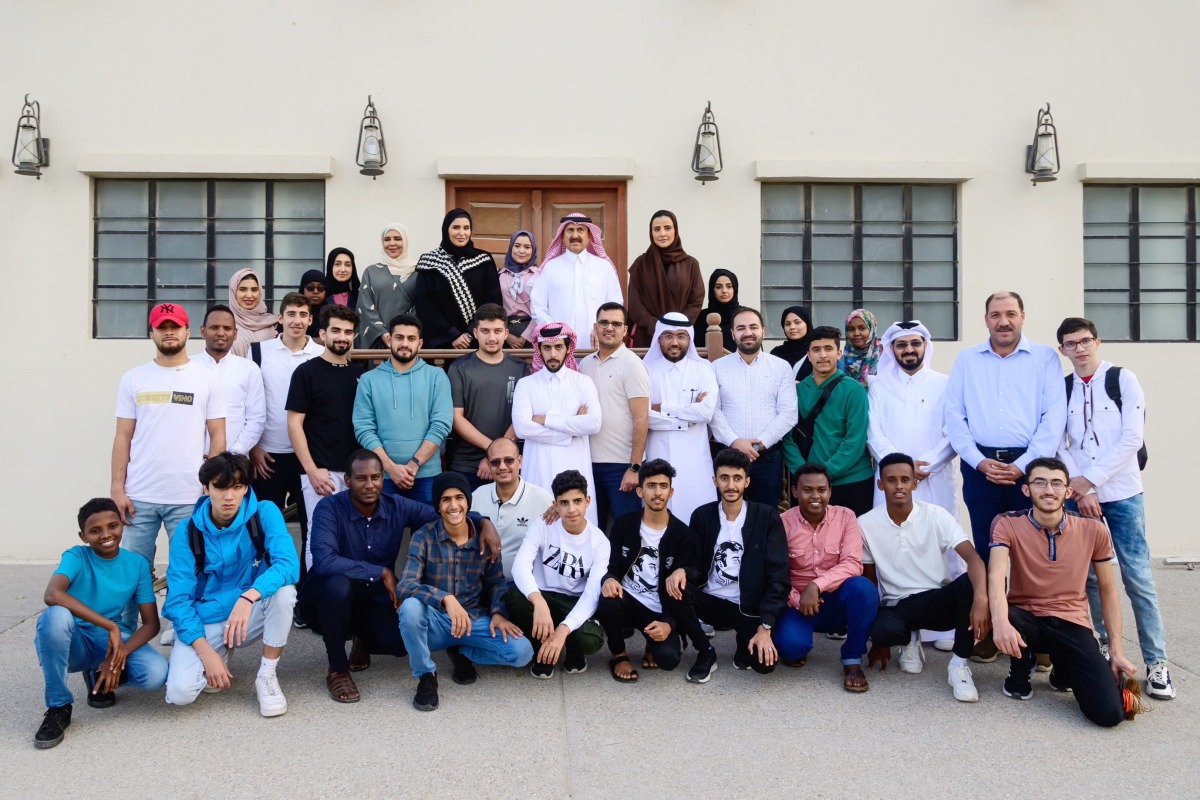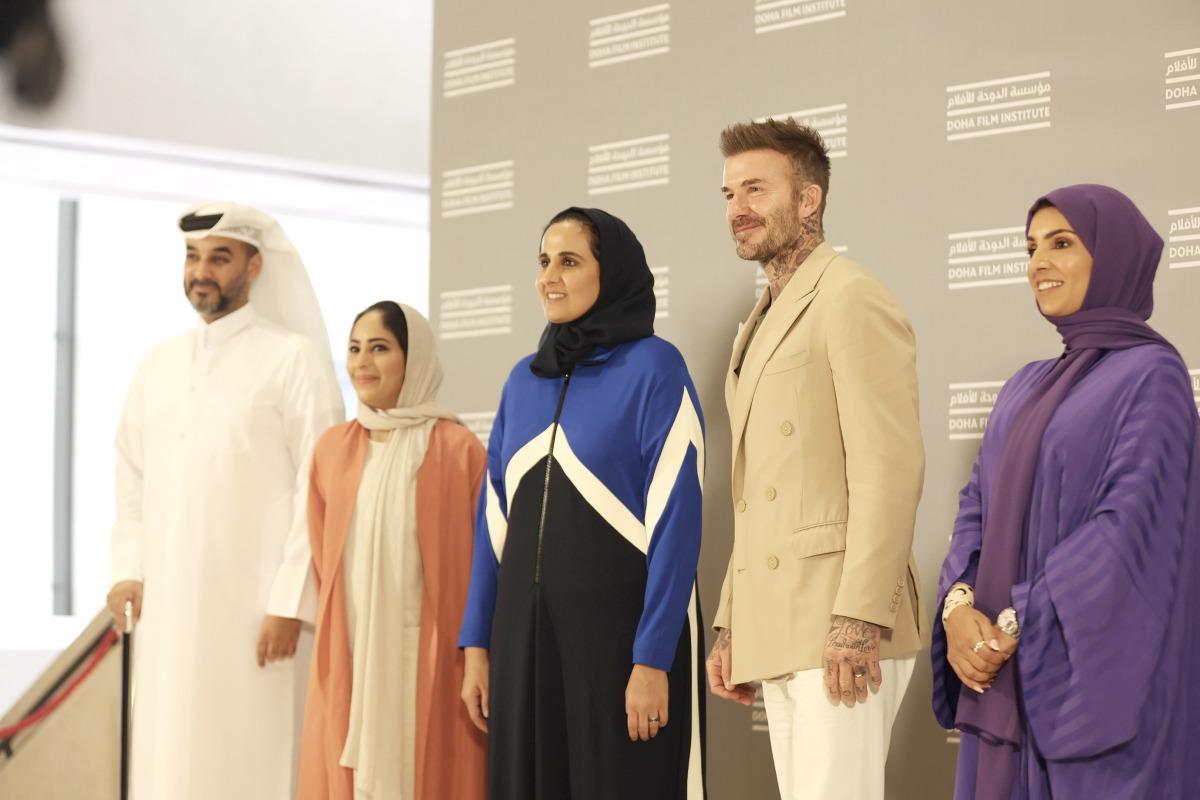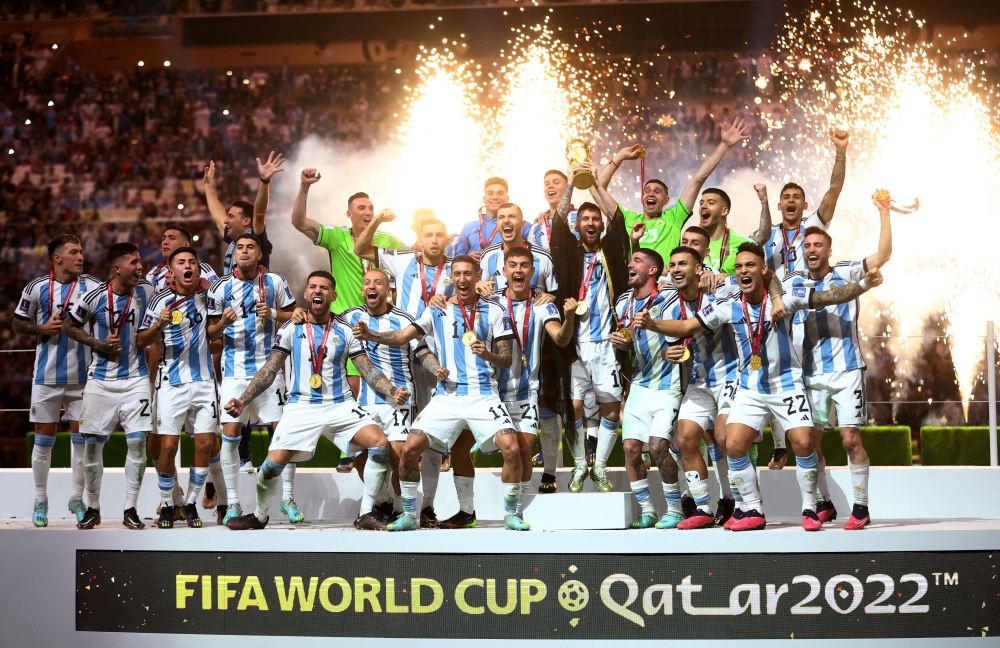Although the compensation program has received blatant support, none of the eligible football associations have backed the effort.
Despite no western federation really going to support the #PayUpFifa campaign, a new survey by Amnesty International has revealed the demand to urge FIFA and Qatari authorities to utilize World Cup 2022 earnings to compensate laborers who suffered during preparations for the major tournament.
The loss of a loved one cannot be compensated for by Qatar or FIFA, according to Nick McGeehan, a founding director of FairSquare, a group that looks into migrant labor abuses.
However, he continued, “financial compensation to suffering families for the deaths of migrant workers could provide some financial reprieve and possibly lessen long-term harm.”
Nearly three-quarters (73%)—and 84% of those likely to watch at least one World Cup match—of respondents in the countries surveyed said they would favour FIFA use some of the generated money to pay out compensation to migrant workers who suffered “death or injury, wage theft or debt from illegal recruitment fees” during the lead up to the World Cup 2022 in Qatar, according to a new global poll commissioned by the Amnesty International.
The YouGov survey of more than 17,000 adults in 15 nations revealed that 67% of adults wanted their national football associations to publicly discuss the concerns of migrant workers’ compensation and other human rights related to the World Cup in the Gulf nation.
“These findings send a clear message to football’s leadership. Across the globe, people are united in their desire to see FIFA step up and make amends for the suffering endured by migrant workers in Qatar. They also want to see their national associations take a much firmer stance,” said Steve Cockburn, Amnesty International’s Head of Economic and Social Justice.
Since winning the bid to host the 2022 FIFA World Cup back in 2010, Qatar has come under incessant Western-heavy criticism over its human rights abuses, prompting senior Qatari officials to speak out.
However, the Gulf country has since undergone major reforms, especially with regards to its labour laws.
“With less than 70 days until kick off, the clock is ticking. But there is still time for FIFA to do the right thing. Supporters don’t want a World Cup that’s indelibly tainted by human rights abuses. The past cannot be undone, but a compensation programme is a clear and simple way that FIFA and Qatar can provide at least some measure of redress to the hundreds of thousands of workers who made this tournament possible,” said Cockburn.
The findings back the #PayUpFIFA campaign, a collective appeal by human rights groups for FIFA to match the tournament’s $440 million in prize money with compensation for migrant workers who have experienced human rights violations during the tournament’s preparations.
The campaign was launched in May by a coalition of human rights organisations, including Amnesty International, fans groups and trade unions.
It has been estimated that FIFA will make around $6 billion in revenues from the sporting tournament.
The #PayUpFIFA campaign has also indicated the obligation of national football associations under international human rights norms to promote migrant workers’ rights, given their participation in the World Cup.
Doha News has reached out to authorities in Qatar but has yet to receive a response.
‘All talk, no action’
Seen as a case of ‘all talk, no action’, none of the 31 qualifying federations have yet backed the campaign to compensate workers in the Gulf state, despite being vocal about their disapproval of the World Cup being held in Qatar.
In a survey sent to global football federations by the United Kingdom’s The Independent, the outlet said 14 acknowledged the email, but only eight provided appropriate responses to the inquiries.
Australia, Denmark, England, France, Germany, the Netherlands, Portugal, Switzerland and Spain were among those to answer questions on human rights concerns in relation to their participation at the Qatar World Cup, as well as plans to support or comment on the #PayUpFIFA campaign.
However no football association has called on FIFA to set up the remediation programme.
Seven of them indicated direct concern about human rights issues in Qatar, though The Independent alleged that Belgium, Croatia, and the United States have reportedly addressed their concerns to the hosts separately.
The three human rights organisations (Amnesty International, Human Rights Watch, and FairSquare) also wrote to FIFA’s 14 corporate partners and World Cup sponsors back in July, pleading with them to demand that the football organisation address mistreatment of migrant workers connected to World Cup preparations. Four of which have since expressed support for such monetary compensation, namely AB InBev/Budweiser, Adidas, Coca-Cola, and McDonald’s.
Ten additional sponsors have not provided any public backing and have not replied to written inquiries regarding tournament-related violations despite having policies to respect human rights and environmental, social, and governance standards in their operations and business relationships.
“Brands buy rights to sponsor the World Cup because they want to be associated with joy, fair competition, and spectacular human achievement on the playing field—not rampant wage theft and the deaths of workers who made the World Cup possible,” said Minky Worden, Director of Global Initiatives at Human Rights Watch.
“With only two months until the first ball is kicked, sponsors should use their considerable leverage to press FIFA and Qatar to fulfil their human rights responsibilities to these workers.”
17,477 persons were polled by YouGov in Argentina, Belgium, Denmark, Finland, France, Germany, Kenya, Mexico, Morocco, Netherlands, Norway, Spain, Switzerland, United Kingdom, and the United States.
54% of them indicated that they would probably watch at least one World Cup game, the Amnesty International report said.
Support in favour of the compensation came the strongest from Kenya, with 93% of respondents. Numerous abuses, Amnesty said, including forced labour of Kenyan security guards, construction workers, and domestic workers, have been documented by Amnesty International and are said to be committed in Qatar, where thousands of Kenyans are employed.
Backing for the compensation programme also exceeded three-quarters in 2026 World Cup co-hosts Mexico (86%), and also Spain (83%), Argentina (82%), Switzerland (81%), Finland (79%) and Belgium (77%).
Support among likely World Cup viewers was even higher, standing at above 80% in 11 of the 15 countries.
Only 10% of those polled stated they would be against FIFA paying out compensation, and the remaining 17% said they were not aware of it either way.
Human rights concerns
Qatar’s international scrutiny over its treatment of migrant workers has prompted the onset of various calls for boycott, with Norway initiating the movement in Europe. Among those who joined calls for boycott were the Netherlands and Germany, both of which decided not to follow through with their claims.
However, only slightly more than a third of qualified nations have held appropriate talks with human rights organisations concerning this World Cup, and only four of those have allowed such bodies to speak directly to players.
Meanwhile, Spain, along with France and Poland, was one of three federations that did not specifically mention Qatar in their comments.
Despite significant criticism, the association of the 2010 winners cited measures related to the relocation of the Spanish Super Cup to Saudi Arabia as proof of their dedication to human rights.
The “anti-host” narrative is nothing new, but there are two things that differentiate Qatar, Simon Chadwick, Professor of Sport and Geopolitical Economy at SKEMA Business School in Paris, told Doha News.
“Whereas most World Cup hosts are in the spotlight for three or four years, Qatar has been in the spotlight for more than a decade – it has been exposed to an unprecedented level of scrutiny,” he added.
Racist denotations
Qatar’s Amir Sheikh Tamim bin Hamad Al Thani in May took aim at the unfair criticism of the Gulf state by the west over its hosting of the 2022 World Cup.
This came during his speech at the World Economic Forum in Davos, in which the amir tapped into attacks launched against the Gulf state for being the first in the Middle East to host the major sporting event.
“For decades now, the Middle East has suffered, from discrimination. And I have found that such discrimination is largely based on people not knowing us, and in some cases, refusing to get to know us,” said Sheikh Tamim.
Analysts say a lot of the criticism that Qatar receives is not fuelled by the demand for positive change, and is instead filled with racist and Islamophobic undertones.
“Mega-event hosting should ultimately be an egalitarian phenomenon – all countries are entitled to stage football’s World Cups,” Chadwick told Doha News
“However, as concerns about nations such as Qatar playing host to these tournaments are expressed, it does rather play into the stereotypes and tropes associated with Qataris, Arabs and Muslims”.
Over the past few years, Qatar has seen a number of labour reforms. In 2021, Doha introduced the region’s first ever non-discriminatory minimum wage law.
Additionally, Doha approved two key laws in August 2020 to eliminate barriers on migrant workers leaving the country and changing jobs without permission from their employers.
The historic reforms have been praised by the global community, including the United Nations’ International Labour Organisation, which has for years worked alongside the Qatari government to address rights concerns from its office in Doha.

















Leave a Reply